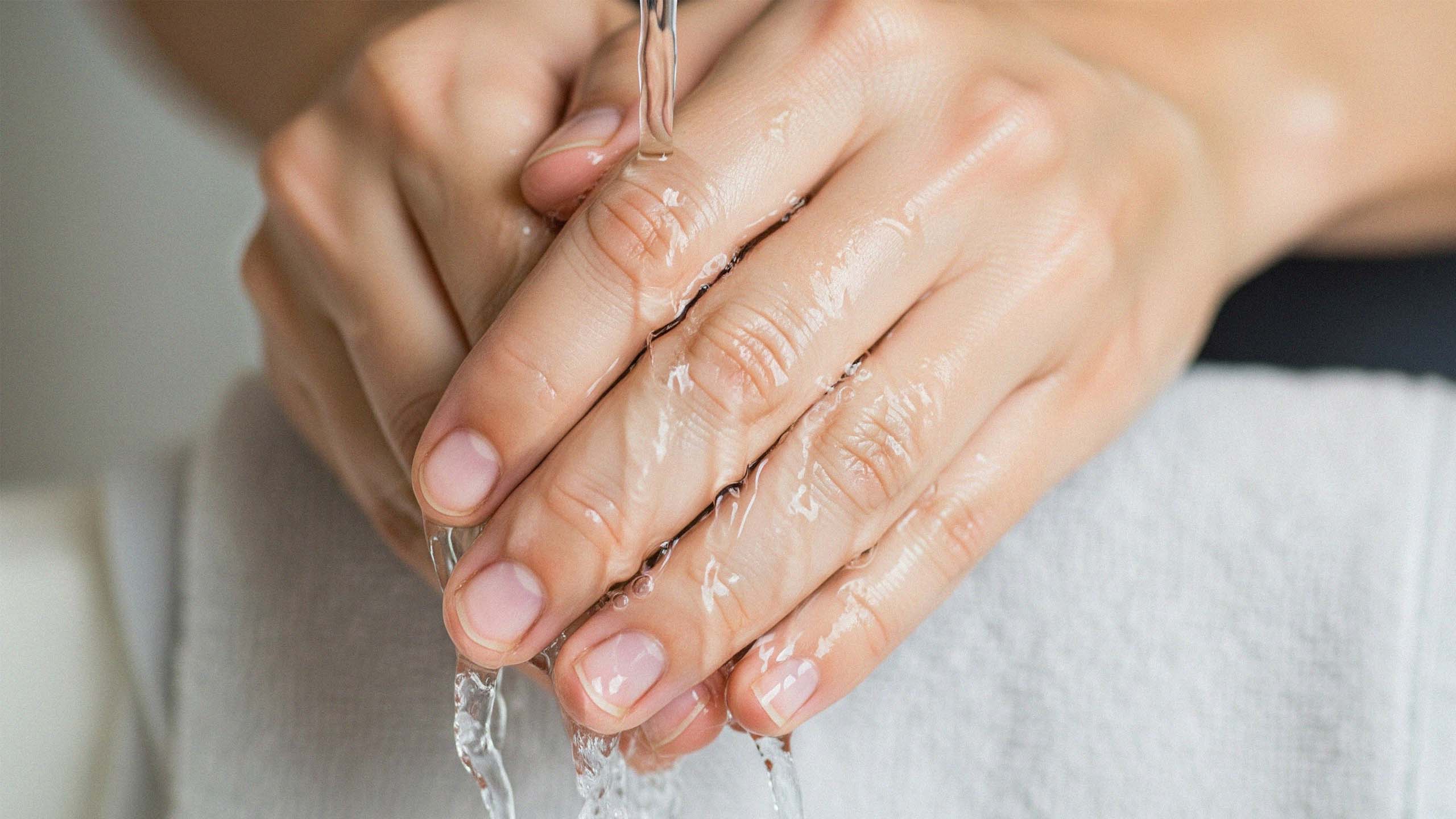Simple Steps for Daily Vaginal Hygiene

Maintaining vaginal hygiene is an important part of overall health and comfort. A balanced approach to vaginal care can promote cleanliness, reduce the risk of infections, and support confidence in daily life. This guide outlines practical, evidence-based practices for daily vaginal hygiene, presented in a straightforward and approachable way.
Understanding the Vagina’s Natural Balance
The vagina is a self-regulating environment with a delicate balance of bacteria and pH levels, typically ranging from 3.8 to 4.5. This natural acidity helps protect against harmful bacteria and infections. Overwashing or using harsh products can disrupt this balance, potentially leading to irritation or conditions like bacterial vaginosis or yeast infections. The goal of daily hygiene is to support the body’s natural processes without interfering.
Daily Hygiene Practices
Here are practical steps to incorporate into your routine for maintaining vaginal health:
1. Gentle Cleansing
-
Use mild, unscented soap: Choose a fragrance-free, hypoallergenic soap or a cleanser specifically formulated for intimate areas. Harsh soaps or body washes with strong fragrances can irritate sensitive skin and disrupt vaginal pH.
-
Clean the vulva, not the vagina: Focus on washing the external genital area (the vulva), including the labia and surrounding skin. The vagina itself is self-cleaning and does not need internal washing or douching.
-
Rinse thoroughly: After cleansing, rinse with warm water to remove any soap residue, which can cause irritation if left on the skin.
-
Frequency: Washing once daily, such as during a shower, is usually sufficient. Overwashing can strip natural oils and lead to dryness or irritation.
2. Avoid Douching
Douching, or using water or solutions to rinse inside the vagina, is unnecessary and can harm the natural bacterial balance. Studies show that douching increases the risk of infections and other complications. Let the vagina maintain its natural environment without interference.
3. Air Out Your Vulva
-
Go Underwear-Free When Possible
Whenever you wear long skirts or loose dresses, consider skipping underwear for a few hours. Allowing your vulva to be exposed to air helps reduce excess moisture and heat buildup, which are common contributors to irritation and infections like yeast infections or bacterial vaginosis. Air circulation keeps the area dry and balanced, promoting better overall vulvar health. -
Spend Time Nude at Home: If you’re comfortable, try going without clothing when you’re in the privacy of your home. This might feel bold at first, but it has real health benefits for your vulva. Regular exposure to fresh air helps minimize friction, moisture, and irritation caused by synthetic fabrics or tight clothing. Over time, this simple habit can improve comfort, reduce odor, and support the natural ecosystem of your intimate area.
-
Sleep Without Clothing: Sleeping nude is one of the easiest and most effective ways to let your vulva breathe. Throughout the day, underwear and tight clothing can trap sweat and heat, creating a damp environment that bacteria and fungi thrive in. By sleeping without underwear or pajamas, you encourage natural airflow, which helps prevent infections and maintains a healthier vaginal pH. After all, our bodies were not designed to be tightly covered 24/7—giving them time to breathe is essential for comfort and health.
4. Choose Breathable Clothing
-
Wear cotton underwear: Cotton is breathable and helps keep the area dry by wicking moisture. Synthetic materials like nylon or polyester can trap heat and moisture, creating an environment where bacteria or yeast may thrive.
-
Avoid tight clothing: Tight pants or underwear can cause friction and reduce airflow. Opt for looser-fitting clothing when possible, especially during warmer months or physical activity.
-
Change out of wet clothes promptly: After swimming, exercising, or sweating, change into dry clothes to prevent moisture buildup.
5. Practice Safe Menstrual Hygiene
-
Change menstrual products regularly: Whether using pads, tampons, or menstrual cups, change or clean them every 4-8 hours, depending on flow and product instructions. This helps prevent bacterial growth and reduces the risk of infections like toxic shock syndrome (TSS).
-
Clean reusable products thoroughly: If using a menstrual cup or cloth pads, follow manufacturer guidelines for cleaning and storage to ensure hygiene.
-
Use unscented products: Fragranced pads or tampons can cause irritation for some people. Opt for unscented, hypoallergenic options when possible.
6. Wipe Properly
When using the bathroom, wipe from front to back to prevent bacteria from the anal area from entering the vagina or urethra. This simple habit can significantly reduce the risk of urinary tract infections (UTIs) and other issues.
7. Stay Hydrated and Maintain a Balanced Diet
-
Hydration: Drinking plenty of water supports overall health, including the body’s ability to maintain a healthy vaginal environment.
-
Nutrition: A balanced diet with fruits, vegetables, and whole grains supports immune health, which plays a role in preventing infections. Some studies suggest that probiotics, found in foods like yogurt or fermented products, may promote healthy vaginal flora, though more research is needed.
| Practice | Details |
|---|---|
| Gentle Cleansing | Use mild, unscented soap on the vulva only; rinse thoroughly. |
| Avoid Douching | Do not rinse inside the vagina to preserve natural bacteria. |
| Breathable Clothing | Wear cotton underwear; avoid tight or wet clothing. |
| Menstrual Hygiene | Change products every 4-8 hours; use unscented options. |
| Wipe Properly | Wipe front to back to prevent bacterial spread. |
Additional Tips for Comfort and Health
-
Monitor for changes: Pay attention to changes in odor, discharge, or discomfort. Normal vaginal discharge is typically clear or white and may vary in consistency throughout the menstrual cycle. Persistent changes, strong odors, or symptoms like itching or burning may warrant a visit to a healthcare provider.
-
Avoid irritants: Products like scented sprays, powders, or bubble baths can irritate the vulva. Stick to simple, fragrance-free products.
-
Practice safe sex: Using condoms can help prevent the introduction of harmful bacteria or sexually transmitted infections (STIs). After sexual activity, urinate and gently cleanse the vulva to reduce the risk of infections.
-
Regular check-ups: Routine gynecological visits can help catch potential issues early. Discuss any concerns with a healthcare provider for personalized advice.
When to Seek Medical Advice
While daily hygiene practices can prevent many issues, certain symptoms may indicate a need for professional care. Contact a healthcare provider if you experience:
-
Persistent itching, burning, or irritation
-
Unusual discharge (e.g., green, gray, or foul-smelling)
-
Pain during urination or sexual activity
-
Signs of infection, such as fever or swelling
Myths and Misconceptions
-
Myth: The vagina needs special products to stay clean.
Truth: The vagina is self-cleaning, and the vulva only requires gentle external cleansing with mild products. -
Myth: A strong vaginal odor is always a sign of poor hygiene.
Truth: Mild odor variations are normal, especially during menstruation or after exercise. Persistent or unusual odors may indicate an infection, not a hygiene failure. -
Myth: You need to wash inside the vagina.
Truth: Internal washing can disrupt the natural balance and increase infection risk.
Closing Thoughts
Daily vaginal hygiene doesn’t require complicated routines or specialized products. By focusing on gentle cleansing, breathable clothing, and mindful habits, you can support your body’s natural balance while staying comfortable and confident. Listen to your body, and consult a healthcare provider for any concerns to ensure personalized care.
Disclaimer: The articles and information provided by the Vagina Institute are for informational and educational purposes only. This content is not intended to be a substitute for professional medical advice, diagnosis, or treatment. Always seek the advice of your physician or another qualified health provider with any questions you may have regarding a medical condition.


 Deutsch
Deutsch  English
English  Español
Español  Français
Français 




